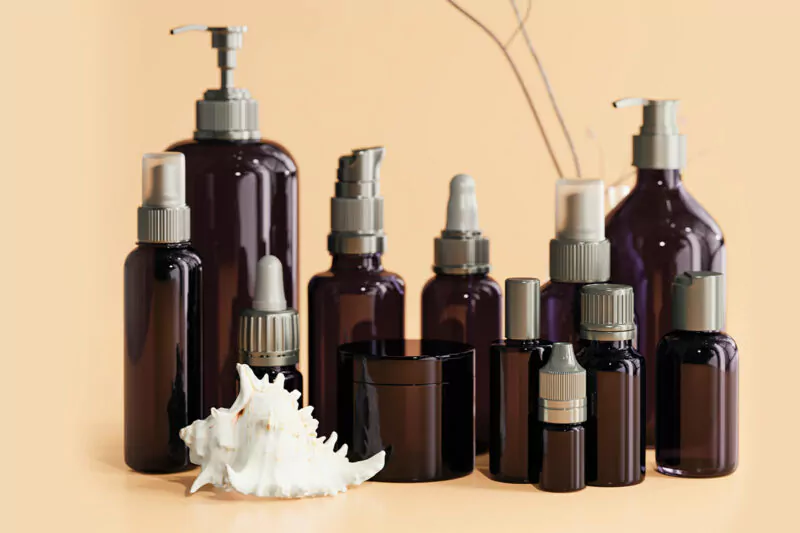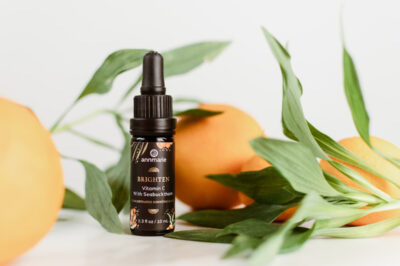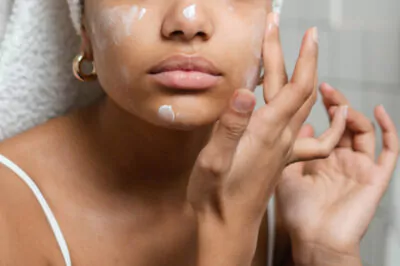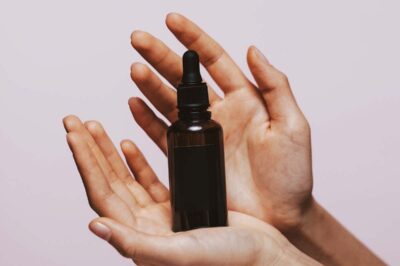Table of Contents[Hide][Show]
Vitamin C is a well-known ingredient that continues to reign in the skin care world. But, as you would with any other beauty care item, it’s important to familiarize yourself with your desired vitamin C product and consider the potential side effects that can come with regular use.
How Does Vitamin C Stain Your Skin?
Though vitamin C is known for its many benefits in boosting skin radiance like skin brightening, there have been a few reported experiences of vitamin C staining skin. So, how exactly does vitamin C stain your skin?
While there are many different types of vitamin C available, the most common form is l-ascorbic acid. This form of vitamin C is notorious for its susceptibility to oxidization, which renders your vitamin C product less effective the more oxidized it becomes.
Along with the ineffectiveness that oxidization causes, the oxidization process that occurs on the skin from this particular form of vitamin C also results in the byproduct, erythrulose. This ingredient—erythrulose, which is actually found in many self-tanner products—then interacts with the proteins on the uppermost layers of the skin, giving off a darker color and the look of temporarily stained skin.

How To Avoid Being Stained by Vitamin C?
So, you’re probably wondering, how can I incorporate the many benefits of this ingredient into my routine, but avoid being stained by vitamin C? Luckily, there are a few ways to do this!
Switch To a Stable Form of Vitamin C
One way to avoid the staining effect is to use a stable form of vitamin C. Tetrahexyldecyl ascorbate (THDA) is oil-soluble—making it much less finicky and safe for skin. It also works incredibly well (we truly consider it to be the best form of vitamin C at this time). Because THDA is a vitamin C derivative that is less likely to oxidize as quickly as l-ascorbic acid does, you can minimize the chances your skin will stain from the oxidization process.
Look for Antioxidant-Rich Formula
Using an antioxidant-rich formula (like our Brighten Concentrated Boosting Elixir with seabuckthorn berry) can help prevent oxidation when you are using vitamin C. Antioxidants help keep ascorbic acid from denaturing into dehydroascorbic acid, which is the first step in the oxidation process resulting in erythrulose (the ingredient that temporarily stains your skin).
Use a Water-Free Formula
Water and oxygen are key ingredients in the oxidation process, so by removing water from a vitamin C formula, you help prevent the oxidation process of vitamin C to erythrulose. However, most water-free formulas are silicon based, which don’t absorb as effectively into your skin and also provide no skin benefits. We use certified organic jojob oil (an oil that mimics your skin’s sebum) in our Brighten Concentrated Boosting Elixir to work with your skin, effectively delivering our favorite vitamin C form, THDA, deep into your skin while providing excellent moisturization.
Apply a Facial Oil After Your Vitamin C
Using a facial oil immediately after your vitamin C product helps seal in your vitamin C. The oil barrier helps protect the vitamin C, preventing air (or oxygen) from reaching it that would initiate the oxidation process. This also gives your vitamin C product time to absorb into your skin.
Properly Store Your Vitamin C
Another tip is to slow down the potential oxidization of your product by storing your vitamin C in a cool, dark location. It also helps if your product is bottled in the proper packaging, like dark amber glass or premium violet miron, which can help filter out different light frequencies to sustain the bottle’s contents.

How To Remove Vitamin C Stains From Skin
What if the staining has already occurred and you’re wanting to know how to remove vitamin C stains from your skin? Because the staining happens on the outermost layer of skin, utilizing an exfoliant a few times a week will help ensure you are removing this, plus dirt, impurities and flakes regularly.
There are many ways to both physically and chemically exfoliate, and either method works great. If you’re a physical exfoliant enthusiast, find one with a grit best suited to your skin type. (Our Ayurvedic Facial Scrub is a dry herb exfoliant that is gentle enough for sensitive skin but uncompromising in results.) Or, perhaps chemical exfoliants are more up your alley. In that case, try gentle alpha hydroxy acids, like our Resurfacing Facial Exfoliant, which features honey-derived lactic acid.
How To Know if Vitamin C Serum Has Oxidized?
As oxidation occurs, your vitamin C serum will start to take on a darker hue, transitioning it from its initial pale color to something more amber or brown in hue. Once your vitamin C serum has oxidized, it won’t work as effectively as it once did and should be discarded. This can potentially be avoided or delayed by proper storage and immediate use.
Frequently Asked Questions
Does Vitamin C Help With Skin Discoloration?
One of vitamin C’s primary roles on the skin is illuminating one’s complexion. With its effective brightening properties, vitamin C can help even out the look of skin tone, addressing the appearance of dark spots and discoloration.
How To Keep Vitamin C From Oxidizing?
To keep your vitamin C product from oxidizing, use optimal packaging (like an airtight, dark glass bottle that limits air and light exposure) and store it in a cool, dry and dark place.









Leave a Reply